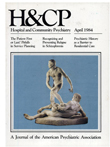Training Psychiatric Staff to Treat a Multicultural Patient Population
Abstract
Cultural and linguistic barriers have long been problems in establisbing an effective therapeutic alliance between patients and therapists from different cultural, ethnic, and racial backgrounds. The current emphasis on cultural psychiatry has stimulated the inclusion of culturally relevant material in the curricuia of American psychiatric residency programs, such as the program at Howard University Hospital in Washington, D.C. After a preliminary study of foreign patients treated on the psychiatry service, the department of psychiatry established a program of seminars and didactic sessions intended to familiarize staff and trainees with cultural patterns of the largest groups of foreign students attending the university. The department also participated in a transcultural fellowship program for medical students sponsored by the American Psychiatric Association and the National Institute of Mental Health. After describing the programs, the authors briefly discuss such culturally related issues as foreign patients' return to their original language when they develop psychiatric illnesses.
Access content
To read the fulltext, please use one of the options below to sign in or purchase access.- Personal login
- Institutional Login
- Sign in via OpenAthens
- Register for access
-
Please login/register if you wish to pair your device and check access availability.
Not a subscriber?
PsychiatryOnline subscription options offer access to the DSM-5 library, books, journals, CME, and patient resources. This all-in-one virtual library provides psychiatrists and mental health professionals with key resources for diagnosis, treatment, research, and professional development.
Need more help? PsychiatryOnline Customer Service may be reached by emailing [email protected] or by calling 800-368-5777 (in the U.S.) or 703-907-7322 (outside the U.S.).



